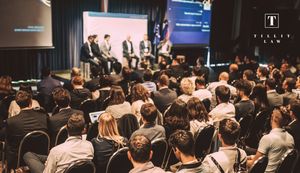For its bid protest function, the Government Accountability Office (GAO) has strict timeliness rules for protest submissions. These timeliness rules are designed so that protestors may receive an effective and efficient resolution to their bid protests without unduly jeopardizing or delaying the procurement at issue. Protestors must file pre-award protests based on alleged improprieties in a solicitation before the time established for the receipt of proposals. Meanwhile, all other protests must generally be filed within ten calendar days of when the protestor knew or should have known about the basis of the protest. However, there is a debriefing exception to these general timeliness rules, which ensures contractors have an opportunity to understand the basis for their loss before deciding to protest. Under 4 C.F.R. § 21.2, this exception applies to procurements involving competitive proposals under which a debriefing is required and requested. The debriefing exception allows protestors to bring protests within 10 days of the required and requested debrief, therefore potentially extending the timeline under which a protest concerning competitive proposals may be brought at the GAO. The term “competitive proposals” is a term of art in government contracts parlance and is not expressly defined by statute or regulation. Competitive proposals involve negotiated procurement procedures that contemplate the creation of a competitive range of offerors before awarding the contract to the offeror that presents the most advantageous solution. Notably, the debriefing exception only applies to competitive proposals.
The Federal Acquisition Regulation (FAR) § 15.505 permits offerors that are excluded from the competitive range in competitive proposals to request debriefings before the final award is made. Excluded offerors may elect to delay this debriefing until after an award is made. Making such an election presumably allows the unsuccessful offeror to receive information about its exclusion from the competitive range and other post-award details together in the same debriefing. While choosing the option to defer pre-award debriefings until after the award may, therefore, seem ideal, contractors are well advised to request their debriefing during the pre-award stage. In such situations, requesting a debriefing within three days of the initial exclusion decision and subsequently filing a protest within 10 days of that debrief is the proper method of preserving protest rights at the GAO. This is due to the GAO’s diligent pursuit requirement, which obligates protestors to pursue any information forming the basis of a protest diligently. Notably, this diligent pursuit requirement is also referenced at FAR § 15.505(a)(2), which warns offerors that delaying the pre-award debriefings until after the award may affect the timeliness of any protest filed after the debriefing. Therefore, when contractors are excluded from the competitive range during the pre-award stage of competitive proposals and elect to defer the debrief until after the award, they generally lose their ability to protest their exclusion at the GAO.
This diligent pursuit requirement also extends to negotiated procurements conducted under the Brooks Act implemented by FAR § 36.6 and is best described through an example. In B-420403, a FAR § 36.6 procurement involving architect and engineering requirements, the GAO determined that the protestor failed to pursue its protest diligently and, therefore, refused to apply the debriefing exception. In that protest, the protestor received a pre-award non-selection notice excluding it from the competitive range and identifying the eventual awardee as the most highly qualified firm. The non-selection notice sent to all unsuccessful firms included a choice between receiving a pre or post-award debriefing. The protestor initially opted for a pre-award debriefing but later revised its request, ultimately electing to receive a post-award debriefing instead. Over half a year later, the agency awarded the contract, and the protestor was given a post-award debriefing per its revised request. The protestor filed its protest the very next day after receiving the post-award debrief. However, despite this, the GAO dismissed the protest as untimely in declining to apply the debriefing exception to its general timeliness rules.
In the decision to dismiss the protest, the GAO reasoned that the debriefing exception did not apply to FAR § 36.6 procurements as they are not conducted based on competitive proposals. In a FAR § 36.6 procurement, the final selection decision is the list produced by the selection authority ranking the selected offerors and identifying the most qualified firm to begin negotiations with. Therefore, when the protestor received the notice of non-selection, it could have either protested that final selection decision within ten days of the notice or opted for a pre-award debriefing. By opting for the post-award debrief option, the protestor did neither and thus failed to diligently pursue information that could have formed the basis of its protest. The GAO also dismissed the protestor’s argument that in selecting the post-award debriefing option, it was merely following the acquisition scheme in the applicable regulations.
Contractors looking to protest agency award decisions involving negotiated procurement procedures should, therefore, be mindful of their diligent pursuit obligations in conjunction with GAO’s strict deadlines for protest submissions. In B-420403, the protester's failure to use the most expeditious information-gathering approach violated the duty of diligent pursuit of protest avenues. Here, the most expeditious approach would have been to opt for the pre-award debriefing and subsequently file any protests within 10 days of that debriefing. Since the protestor elected not to receive the pre-award debriefing, it lost its ability to protest its exclusion at the GAO. When given the option, contractors should generally elect to receive their debriefings sooner rather than later. This choice can provide them with crucial information that could form the basis of their protest and help them avoid any potential timeliness pitfalls posed by their affirmative duty to pursue avenues of protest.
This Bid Protests Insight provides a general summary of the applicable law in the practice area and does not constitute legal advice. Contractors wishing to learn more are encouraged to consult the TILLIT LAW PLLC Client Portal or Contact Us to determine how the law would apply in a specific situation.





